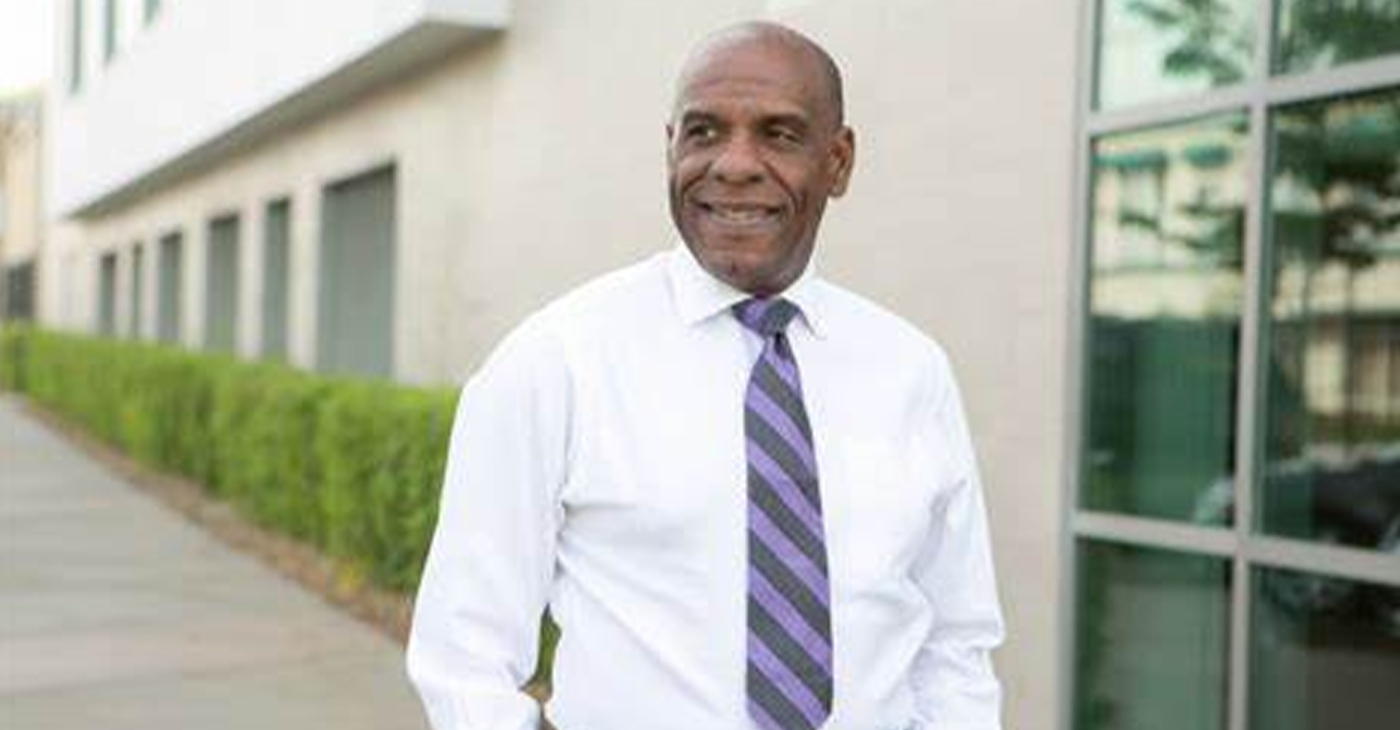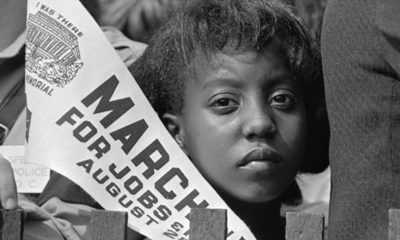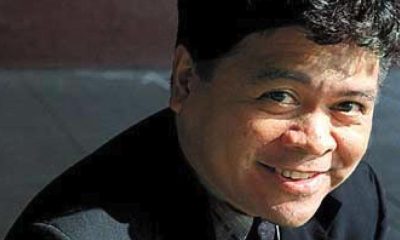Politics
Justices Uphold Use of Drug Implicated in Botched Executions

This Friday, July 25, 2014 file photo shows bottles of midazolam at a hospital pharmacy in Oklahoma City. On Monday, June 29, 2015, The Supreme Court voted 5-4 in a case from Oklahoma saying that the sedative midazolam can be used in executions without violating the Eighth Amendment prohibition on cruel and unusual punishment. (AP Photo/Sue Ogrocki, File)
Mark Sherman, ASSOCIATED PRESS
WASHINGTON (AP) — A deeply divided Supreme Court upheld the use of a controversial drug in lethal-injection executions Monday, even as two dissenting justices said for the first time they think it’s “highly likely” the death penalty itself is unconstitutional.
The justices voted 5-4 in a case from Oklahoma that the sedative midazolam can be used in executions without violating the Eighth Amendment prohibition on cruel and unusual punishment.
The drug was used in executions in Arizona, Ohio and Oklahoma in 2014 that took longer than usual and raised concerns that it did not perform its intended task of putting inmates into a coma-like sleep.
Justice Samuel Alito said for a conservative majority that arguments the drug could not be used effectively as a sedative in executions are speculative and he dismissed problems in executions in Arizona and Oklahoma as “having little probative value for present purposes.”
In dissent, Justice Sonia Sotomayor said, “Under the court’s new rule, it would not matter whether the state intended to use midazolam, or instead to have petitioners drawn and quartered, slowly tortured to death, or actually burned at the stake.”
Alito responded, saying “the dissent’s resort to this outlandish rhetoric reveals the weakness of its legal arguments.”
In a separate dissent, Justice Stephen Breyer said the time has come for the court to debate whether the death penalty itself is constitutional. Justice Ruth Bader Ginsburg joined Breyer’s opinion.
“I believe it highly likely that the death penalty violates the Eighth Amendment,” Breyer said, drawing on the cases he has reviewed in more than 20 years on the Supreme Court bench.
More than 100 death row-inmates have been exonerated, showing that the death penalty is unreliable, Breyer said. He said it also is imposed arbitrarily, takes far too long to carry out and has been abandoned by most of the country. Last year, just seven states carried out executions, he said.
In an extremely unusual turn, four justices read their opinions from the bench in the lethal execution case. Justice Antonin Scalia, part of the court’s majority on Monday, read a brief reply to Breyer. “Welcome to Groundhog Day,” Scalia said, noting that the court has repeatedly upheld the use of capital punishment.
The Supreme Court’s involvement in the case began in January with an unusually public disagreement among the justices over executions.
Then, the court refused to block Oklahoma inmate Charles Warner’s execution despite the objection of the four liberal justices. In a strongly worded dissent for the four, Sotomayor said, “The questions before us are especially important now, given states’ increasing reliance on new and scientifically untested methods of execution.”
Eight days later, the justices agreed to hear the case of three other Oklahoma death-row prisoners. It takes just four votes among the nine justices to agree to hear a case, but five votes to place a hold on an execution.
When the case was argued in late April, the justices engaged in combative exchanges about the Oklahoma case and impassioned debate about capital punishment more generally.
Among the conservatives, Alito said death penalty opponents are waging a “guerrilla war” against executions by working to limit the supply of more effective drugs. On the other side, liberal Justice Elena Kagan contended that the way states carry out most executions amounts to having prisoners “burned alive from the inside.”
In 2008, the court upheld Kentucky’s use of a three-drug execution method that employed a barbiturate as the first drug, intended to render the inmate unconscious. But because of problems obtaining drugs, no state uses the precise combination at issue in that earlier Supreme Court case.
Four states have used midazolam in executions: Arizona, Florida, Ohio and Oklahoma. Also, Alabama, Arkansas, Louisiana and Virginia allow for midazolam, but they have not used it in executions.
Last April’s execution of Clayton Lockett was the first time Oklahoma used midazolam. Lockett writhed on the gurney, moaned and clenched his teeth for several minutes before prison officials tried to halt the process. Lockett died after 43 minutes.
Executions in Arizona and Ohio that used midazolam also went on longer than expected as the inmates gasped and made other noises before dying.
Meanwhile, the court challenge has prompted Oklahoma to approve nitrogen gas as an alternative death penalty method if lethal injections aren’t possible, either because of a court ruling or a drug shortage.
Copyright 2015 The Associated Press. All rights reserved. This material may not be published, broadcast, rewritten or redistributed.
###
Activism
Oakland Post: Week of April 17 – 23, 2024
The printed Weekly Edition of the Oakland Post: Week of April 17 – 23, 2024

To enlarge your view of this issue, use the slider, magnifying glass icon or full page icon in the lower right corner of the browser window. ![]()
Barbara Lee
Congresswoman Barbara Lee Issues Statement on Deaths of Humanitarian Aid Volunteers in Gaza
On April 2, a day after an Israeli airstrike erroneously killed seven employees of World Central Kitchen (WCK), a humanitarian organization delivering aid in the Gaza Strip, a statement was release by Rep. Barbara Lee (D-CA-12). “This is a devastating and avoidable tragedy. My prayers go to the families and loved ones of the selfless members of the World Central Kitchen team whose lives were lost,” said Lee.

By California Black Media
On April 2, a day after an Israeli airstrike erroneously killed seven employees of World Central Kitchen (WCK), a humanitarian organization delivering aid in the Gaza Strip, a statement was release by Rep. Barbara Lee (D-CA-12).
“This is a devastating and avoidable tragedy. My prayers go to the families and loved ones of the selfless members of the World Central Kitchen team whose lives were lost,” said Lee.
The same day, it was confirmed by the organization that the humanitarian aid volunteers were killed in a strike carried out by Israel Defense Forces (IDF). Prior to the incident, members of the team had been travelling in two armored vehicles marked with the WCF logo and they had been coordinating their movements with the IDF. The group had successfully delivered 10 tons of humanitarian food in a deconflicted zone when its convoy was struck.
“This is not only an attack against WCK. This is an attack on humanitarian organizations showing up in the direst situations where food is being used as a weapon of war. This is unforgivable,” said Erin Gore, chief executive officer of World Central Kitchen.
The seven victims included a U.S. citizen as well as others from Australia, Poland, the United Kingdom, Canada, and Palestine.
Lee has been a vocal advocate for a ceasefire in Gaza and has supported actions by President Joe Biden to airdrop humanitarian aid in the area.
“Far too many civilians have lost their lives as a result of Benjamin Netanyahu’s reprehensible military offensive. The U.S. must join with our allies and demand an immediate, permanent ceasefire – it’s long overdue,” Lee said.
Community
Financial Assistance Bill for Descendants of Enslaved Persons to Help Them Purchase, Own, or Maintain a Home
California Legislative Black Caucus (CLBC) vice chair Sen. Steven Bradford (D-Inglewood) introduced new legislation related to reparations to the Senate Committee on Housing on April 2 in Sacramento. Senate Bill (SB) 1007, “establishes the Homeowner’s Assistance for Descendants of Enslaved Persons Program to make financial aid or assistance available to descendants for the purposes of purchasing, owning, or maintaining a home,” the legislation states.

California Legislative Black Caucus (CLBC) vice chair Sen. Steven Bradford (D-Inglewood) introduced new legislation related to reparations to the Senate Committee on Housing on April 2 in Sacramento.
Senate Bill (SB) 1007, “establishes the Homeowner’s Assistance for Descendants of Enslaved Persons Program to make financial aid or assistance available to descendants for the purposes of purchasing, owning, or maintaining a home,” the legislation states.
The Senate Housing Committee advanced the bill with an 8-1 vote. It will be re-referred to the Appropriations Committee for consideration.
Sen. Kelly Seyarto (R-Murrieta) was the only member who voted against the bill.
“SB 1007 is about starting a long process of paying back a debt that is not only owed, but that was also promised, and is 160 years overdue, to African Americans,” Bradford told the committee chaired by Sen. Nancy Skinner (D-Berkeley). “It is the first step in closing the wealth and equity gap created by centuries of slavery and racial discrimination policies.”
The bill aligns with one of the 115 recommendations listed in a two-year study conducted by the California reparations task force, of which Bradford was one of nine members.
Bradford said the report reveals that, in the state of California, a typical Black-owned home is 22% less valuable than a White-owned home.
Various advocacy groups from around the state attended the hearing held at the State Capitol Annex Swing Space. The California Housing Partnership, Bay Area Regional Health and Inequities Initiative, Coalition for A Just and Equitable California, Disability Rights of California, the American Civil Liberties Union of California, and California Community Builders all voiced their support of the bill.
-

 Activism4 weeks ago
Activism4 weeks agoOakland Post: Week of March 20 – 26, 2024
-

 #NNPA BlackPress3 weeks ago
#NNPA BlackPress3 weeks agoCOMMENTARY: D.C. Crime Bill Fails to Address Root Causes of Violence and Incarceration
-

 #NNPA BlackPress3 weeks ago
#NNPA BlackPress3 weeks agoMayor, City Council President React to May 31 Closing of Birmingham-Southern College
-

 #NNPA BlackPress4 weeks ago
#NNPA BlackPress4 weeks agoFrom Raids to Revelations: The Dark Turn in Sean ‘Diddy’ Combs’ Saga
-

 #NNPA BlackPress4 weeks ago
#NNPA BlackPress4 weeks agoCOMMENTARY: Lady Day and The Lights!
-

 Activism3 weeks ago
Activism3 weeks agoOakland Post: Week of March 27 – April 2, 2024
-

 #NNPA BlackPress4 weeks ago
#NNPA BlackPress4 weeks agoBaltimore Key Bridge Catastrophe: A City’s Heartbreak and a Nation’s Alarm
-

 #NNPA BlackPress4 weeks ago
#NNPA BlackPress4 weeks agoBaltimore’s Key Bridge Struck by Ship, Collapses into Water


















































